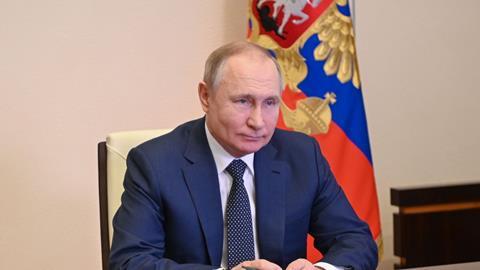The position of Ukraine is a heart-breaking outrage. War crimes reach us live from broadcast media and smart phones. And we cannot fully answer the call of its citizens to ‘shelter our skies’. How can legal processes possibly help now? Right now, nothing attempted at The Hague’s tribunals would stop the missiles and shells.
Moral authority gets mocked in such situations – in public by dictators, at least.
Joseph Stalin, on being informed that the Pope wanted him to lay off persecuting Catholics in the USSR, is supposed to have quipped: ‘The Pope? How many divisions has he got?’
Mao Zedong, in similar vein, said: ‘Diplomacy flows from the barrel of a gun.’
We cannot ignore such hard power. How could we?
And yet The Hague Matters.
I haven’t stolen many books in my 48 years, but I did disappear my Philippine grandfather’s copy of ‘Diplomacy in the Nuclear Age’ from his study after his death.
(In my defence, this volume bears the stamp ‘Philippine Embassy Library London’, so this was a second thieving.)
It’s by Canadian statesman Lester Pearson, a now little remembered Nobel Peace Prize winner. Pearson charts, in essays based on his Nobel lectures, the relationship between hard and soft power.
Diplomacy, its possible solutions, do not just rest on ‘tact’, he makes clear.
The combination of hard and soft power and how each are used in concert, not the silken words many assume is ‘diplomatic’, is real diplomacy. Statecraft, if you will.
And international law is now, definitively, an important player here.
The Hague, as shorthand for its permanent and specially constituted courts, matters in all this.
As a sixth former and undergraduate in the 1990s, I watched the war in the former Yugoslavia, a country I knew from holidays, in horror. Not least, a school friend was from Croatia, and was frank about his distress. The perpetrators of war crimes seemed beyond reach.
When the International Criminal Tribunal for the Former Yugoslavia (ICTY) began its investigations and then issued indictments, the indictees roamed free with impunity.
And those indictments brought back the victims as memories only.
Yet in 2015, at the ICTY, I met the former Australian policeman who excavated the Srebrenica massacre. And I saw Radovan Karadzic on trial, through the glass of the interpreter’s booth. ‘Justice,’ I thought.
In addition to the Nuremberg trials after World War II, ad hoc tribunals have also done their work following genocides and war crimes in Rwanda and Cambodia. The ICC has its indictees, and results, and there is progress, albeit uneven, for the Lebanon Tribunal.
Their work is open to legitimate criticism. It may seem in bad taste to criticise the Nuremberg trials, but the quick passage from guilty verdict to hanging is unsettling, even given the overwhelming evidence against the guilty. The Lebanon tribunal has had its problems (though it alone, among the specially constituted tribunals, has tried to work as conflict continues).
Still, ‘The Hague’ is the strongest brand the rule of law has. It’s a Louis Vuitton, a Mercedes, a Coca Cola – a Nike. A Steinway. Maybe even a Skoda.
If modern rulers had the same indifference to actions at The Hague as Stalin and Mao Zedong, they wouldn’t pre-emptively kick against the authority – or even existence – of The Hague courts.
But they do.
The US is not an ICC signatory state, because of such caution, and president Trump openly loathed the court. Here some MPs and ministers vented their fury at the ICC’s investigation into ‘Iraq/United Kingdom’, which ran from 2014-2020. Russia passed pre-emptive laws to say its own courts cannot be trumped by international courts.
Why would they bother if having nuclear weapons and big armies was enough?
Someone on LinkedIn asked me how events at The Hague could cut through to Putin, surrounded as he is by yes-men (and this week, trainee airline stewardesses).
After some thinking, I’d say it’s like a pirate being slipped ‘The Black Spot’. At one level, it’s just a mark on a piece of paper – delivered at a point when you command ships, men and cannon. But it is a delimited statement of intent. It says – we’re coming for you at some point.
It’s like a slow-burning terminal diagnosis. 'We will get you,' it says, 'unless something else does first.'
Fortunes wane, health fades – the people around a powerful person notice.
We don’t shelter the skies above Ukraine. But talk of The Hague might keep Putin and his commanders awake at night.
Puny though it seems as bombs fall, that is The Hague’s power.
The ICTY indicted 165 individuals. They are all accounted for as: dead; acquitted; or guilty.
As we seek a resolution that saves Ukraine and Ukrainians, The Hague is something we want in the arsenal. Let’s not underestimate its firepower.
This article is now closed for comment.





































5 Readers' comments